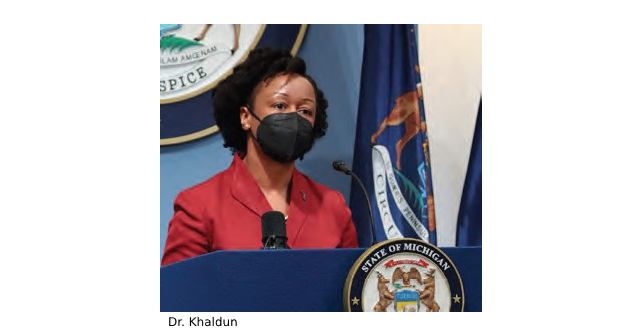
Physician leadership is a priority for ACEP Immediate Past President Aisha T. Terry, MD, MPH, FACEP. She’s approaching the issue from all sides. As she builds a programmatic approach within ACEP to identify and cultivate leaders, she is strengthening the “pipeline” and creating opportunities for newer physicians to thrive. In this spotlight. Dr. Terry interviews CVS Health’s Vice President and Chief Health Equity Officer Joneigh S. Khaldun, MD, MPH, FACEP.
Explore This Issue
ACEP Now: Vol 43 – No 10 – October 2024The Leadership Spotlight highlights examples of emergency physicians using their foundation in emergency medicine to lead, teach, and inspire the next generation. Whether inside the hospital or beyond, the foundation laid by deep experience in the specialty is versatile, unique, and invaluable.
DR. TERRY: You’ve done so many things in terms of your career, and your current position is such a massive undertaking and impactful role. Was it always your intention to lead in this type of capacity? You’ve had certainly local leadership and state leadership and government related leadership roles in terms of advocacy and health policy. Did you anticipate being where you are today?
DR. KHALDUN: As a child, I knew I wanted to be a doctor because I saw my parents, who are from the east side of Detroit, deal with health issues in my family’s community. There were things that I saw as preventable, and I just had this fire in me where I wanted to fix it. I wanted to make my community healthier. Being a physician was the way to fix health, because as doctors, that’s what we do. I quickly figured out in my medical training path, certainly in medical school, that I wanted to make this a significant part of my career.
Through all my roles, whether it was at the Office of Health Reform at HHS or Chief Medical Officer in Baltimore or Director Detroit Health Department or leading Medicaid Public Health for the State of Michigan—and now at CVS—the common thread is that I really want to make changes in the health care system at scale. Public health is a good way to do that. But I still practice emergency medicine at Henry Ford in Detroit and have practiced throughout all my other roles. I love the practice of emergency medicine, especially urban emergency medicine, and I love working with medical students and residents because it keeps me grounded.
DR. TERRY: Most of your work has been through government, local, state and federal. How is your current role different?
Pages: 1 2 3 4 5 | Single Page




No Responses to “This Emergency Physician Leader Works on Patients and Policy”